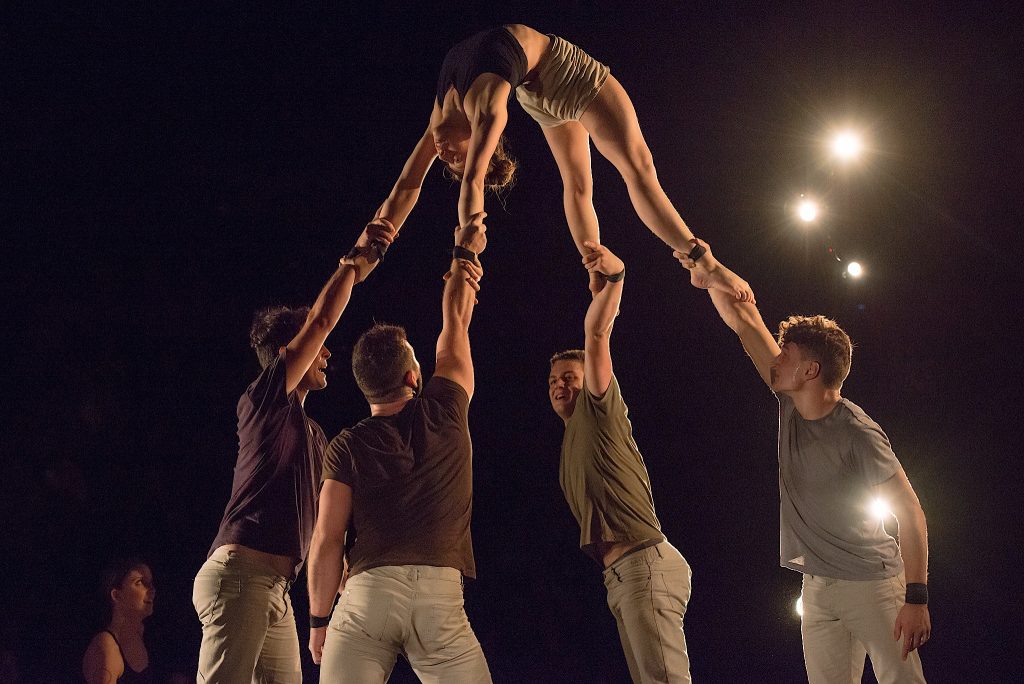IN THE MEDIA
Misguided representation of Israeli-Palestinian relations has no place in our society
January 7, 2022 | Colin Rubenstein

Daily Telegraph – 7 January 2022
Even before this year’s Sydney Festival opened, Australians were treated to farcical political theatre courtesy of a staged disinformation campaign by local anti-Israel Boycott, Divestment and Sanctions (BDS) activists.
The goal of the boycotters: to intimidate event organisers into reneging on a sponsorship arrangement with the Israeli Embassy that will help facilitate the staging of a dance performance by the Sydney Dance Company set to choreography by the world-renowned Israeli visionary Ohad Naharin.
Predictably, a number of performers – some known BDS supporters – withdrew from the event. The stunt followed the well-worn playbook of strongarm tactics that BDS has followed at festivals internationally.
Let it not be forgotten that there is nothing remarkable about the sponsorship in itself. Indeed, many countries, including Australia, routinely assist native artists to showcase their talents abroad as a form of cultural exchange.
The attempt at sowing controversy – manufactured as it is – relies upon the demonization and delegitimization of Israel and the acceptance a priori that Israel, and all Israelis by extension, uniquely deserve to be ostracized and excluded from the global community in all respects, whether in commerce, sports, academia or, as in this case, the arts.
The basis for such extremism is not justified by any measure but rather fueled by a mob mentality stoked by caricature-like distortions and outright lies and fabrications driven by hyperbolic slogans amplified over social media. Such misrepresentations include claims that Jews are not indigenous in their own homeland; that Israel is an “Apartheid” society even though all its citizens have equal rights and Arabs are prominent across all sectors including Government; and never mentioning the ongoing terrorism emanating from Hamas-ruled Gaza or from the West Bank.
BDS is an insidious movement whose tactics, strategies and aims, as stated by its leaders, make it clear that they don’t want a Palestinian state alongside Israel, but to replace Israel. It is in this sense that the BDS movement is inherently antisemitic, not motivated by desires of peace or reconciliation but by intense animosity and an obsessive desire to deprive Jews of the right to self-determination afforded to other peoples.
Standing up against the BDS movement is the right thing to do even by Israel’s strongest critics. While frustration over the lack of progress in a long-stalled peace process is understandable, the BDS movement’s formula of placing the blame for the lack of Palestinian statehood on Israel alone is not only historically revisionist but a recipe for the perpetuation of the conflict, as it undermines the climate of compromise any genuine reconciliation between the two traumatised peoples must be built upon. And it is particularly counterproductive in these otherwise more promising times of the historic Abraham Accords witnessing genuine normalization between Israel and several regional Arab and Muslim countries, including Bahrain, Morocco, the United Arab Emirates and Sudan.
Moreover, regrettably, Palestinian leaders have rejected three Israeli comprehensive peace proposals over the past two decades that would have realised the creation of a Palestinian state on practically all of the land area of the West Bank and Gaza after mutually agreed land swaps. True friends of the Palestinians would not encourage efforts that will likely further undermine their next chance at statehood. But that is exactly what the extremist BDS movement and its supporters demand if accepting a Palestinian state means making peace with Israel.
At the heart of the misguided Sydney Festival BDS stunt lies the profound irony that, among Israelis, choreographer Naharin is well known for his criticism of Israeli government policies and his sympathy for Palestinian aspirations.
“I’ve always said that if protesting and boycotting my performances would improve the situation in the territories or bring a solution to the conflict, I would support the boycott myself,” Naharin told Ha’aretz in 2019, “[But] this doesn’t help the Palestinians and won’t result in anything.”
This is not only the assessment of Naharin and other prominent left-wing Israelis but also many Palestinians themselves, including veteran Jerusalem-based Palestinian human rights campaigner Bassem Eid, founder of the Palestinian Human Rights Monitoring Group.
“We have to tell people what the facts are,” Eid told a US newspaper in 2020. “The facts are that BDS is hurting Palestinians more than Israelis.”
Obviously, some Palestinians do back BDS. But the question that those pressured to endorse BDS need to ask is why they should support a boycott that Palestinians themselves cannot agree is in their best interests.
The Australian campaign to shut doors to Naharin, rather than embrace a potential ally for Palestinian rights, says far more about the blinding, destructive obsessive animosity guiding the BDS campaign than about Israel’s alleged failings towards Palestinians. It is a deeply offensive obsession which has no place amidst the celebration of artistic creativity and diversity that the Sydney Festival represents.
Patrons of the arts deserve better than the bullies of BDS.
Dr Colin Rubenstein is executive director of the Australia/Israel & Jewish Affairs Council
Tags: Abraham Accords, BDS, Hamas, Morocco, Sudan, Sydney Festival, UAE





